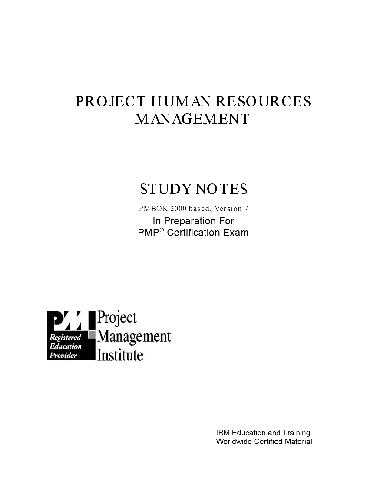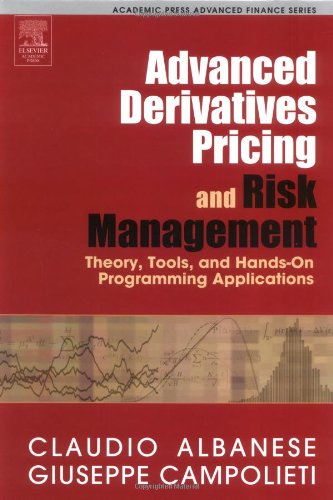Karl Wiig9780750677776, 0750677775
Table of contents :
Team DDU……Page 1
Contents……Page 8
Acknowledgments,……Page 18
Preface,……Page 20
Foreword,……Page 22
The Competitive Enterprise Example,……Page 28
The Global Economy Challenge,……Page 31
The World Requires Us to Change,……Page 33
The Misunderstanding of Knowledge-Intensive Work,……Page 34
Knowledge Intensity,……Page 35
Work Is Becoming Increasingly Complex and Valuable,……Page 36
The Six Major Challenges,……Page 39
Four Management Initiatives,……Page 44
Enterprise Effectiveness Requires Good Intellectual Capital Assets,……Page 46
Examples of Structural Intellectual Capital,……Page 49
The Role of Knowledge Workers,……Page 50
The Proactive and Decisive Company Example,……Page 53
Management Choices,……Page 54
Knowledge-Related Practices and Actions,……Page 55
What Does It Mean That an Enterprise Is Effective?,……Page 56
Good Enterprise Performance Results from Effective Personal Actions,……Page 58
Effective Enterprises Rely on Broad and Deep Knowledge,……Page 60
What Is Successful Enterprise Performance?,……Page 61
External and Internal Enterprise Effectiveness,……Page 62
The Importance of Information Technology,……Page 63
Productivity Is Not Always What We Expect!,……Page 64
Different Kinds of Productivity,……Page 65
Value Creation and Productivity,……Page 66
A Systemic Model of Enterprise Performance,……Page 67
Changing Enterprise Performance Takes Time,……Page 69
Characteristics of the Effective Enterprise,……Page 71
Six Success Factors for the Effective Enterprise,……Page 73
Six Behaviors of the Effective Enterprise,……Page 78
Successful Performance Is Durable,……Page 82
Performance Is a Function of Many Factors Acting Simultaneously,……Page 85
The Intellectual Asset Management Mentality,……Page 86
Building and Exploiting Intellectual Capital Assets Are Important,……Page 87
People Adopt New Mindsets!,……Page 88
Premise 3-2: The Mind-As-Machine Metaphor Does Not Cover Everything,……Page 90
The Personal Reasoning Example,……Page 91
Have We Misunderstood How People Think, Make Decisions, and Act?,……Page 92
Thinking, Reasoning, and Knowledge,……Page 96
Associations and Biases Govern Our Actions,……Page 99
The Purpose of Knowledge Is Action; the Purpose of Information Is Description,……Page 100
On Information, Knowledge, and Discontinuity,……Page 103
Good Reasoning Matches Knowledge and Information,……Page 104
Knowledgeable and Informed Decisions Deliver Performance,……Page 107
Goal-Directed Reasoning Relies on Goals, Information, and Knowledge,……Page 108
Personal Knowledge Is Built from Mental Models,……Page 110
On Mental Models,……Page 112
Many Mental Models Are Based on Metaknowledge,……Page 113
The Importance of Metacognition,……Page 114
The Personal and Enterprise Knowledge Evolution Cycle,……Page 116
Knowledge Required to Act Effectively,……Page 120
Examples of Approaches to Develop Mental Models in People,……Page 123
The Personal Memory Example,……Page 127
Personal Reference Models,……Page 129
Reference Models Are Stories!,……Page 132
It Is Always Hard to Grasp the Whole Coherently,……Page 134
Stories Are Unsurpassed for Effective Communication,……Page 136
Stories Help Us Learn Better,……Page 137
Stories and Mental Simulations,……Page 138
Organizational Reference Models,……Page 141
Leaders Create Powerful Reference Models,……Page 142
Premise 5-2: Good Situation-Handling Is the Result of Effective Actions,……Page 144
Introduction to Personal Situation-Handling,……Page 145
The General Context,……Page 147
The Knowledge-Based Situation-Handling Model,……Page 149
The Customer Service Example Revisited,……Page 152
The Four Situation-Handling Tasks,……Page 153
Sensemaking,……Page 154
Situational Awareness,……Page 155
Decision-Making,……Page 158
Single-Stage and Multistage Decision-Making,……Page 160
Problem-Solving,……Page 162
Action Space,……Page 167
Innovation Capability,……Page 168
Implementation and Execution Capability,……Page 169
Execution Capability,……Page 170
Monitoring,……Page 171
The Expert and the Novice: When Situations Are Not as First Believed,……Page 174
Story-Based Models Provide Situation-Handling Knowledge,……Page 175
Topic Domain Knowledge,……Page 176
The Mental Reference Models in Situation-Handling,……Page 177
The Relevance of General and World Knowledge,……Page 179
Information Gathering,……Page 182
Sensemaking,……Page 183
Understanding the Situation,……Page 184
Decision-Making/Problem-Solving and Action-Selection,……Page 185
General Aspects,……Page 186
Introduction to Enterprise Situation-Handling,……Page 187
The Four Enterprise Situation-Handling Tasks,……Page 189
Sensemaking and Its Situational Awareness,……Page 194
Sensemaking in the Enterprise,……Page 195
Enterprise Situational Awareness,……Page 197
Decision-Making/Problem-Solving and Action Space and Innovation Capability,……Page 199
Enterprise Decision-Making,……Page 202
Enterprise Problem-Solving,……Page 204
Enterprise Action Spaces,……Page 208
Enterprise Innovation Capabilities,……Page 210
Implementation and Its Execution Capability,……Page 213
Implementation in the Enterprise,……Page 216
Enterprise Execution Capability,……Page 218
Monitoring and Governance Competence and Perspectives,……Page 219
Monitoring in the Enterprise,……Page 221
Enterprise Governance Competence and Perspectives,……Page 225
The Importance of the Situation-Handling Model,……Page 227
Enterprise Situation-Handling Model Insights,……Page 229
Why Should We Be Concerned with Details?,……Page 231
Appendix: Action Program Details of the Enterprise Situation-Handling Example,……Page 233
Premise 7-4: Six Factors Determine Personal Knowledge-Related Effectiveness,……Page 240
The Vigilant Knowledge Company Example,……Page 241
New Generation Knowledge Management,……Page 243
New Generation Knowledge Management Is Different,……Page 245
Perspectives on New Generation Knowledge Management,……Page 249
Deliberate and Systematic Knowledge Management,……Page 252
People Focus,……Page 254
Enterprise Focus,……Page 255
The Bar Has Been Raised -NGKM Implications,……Page 257
Starting the Knowledge Management Practice,……Page 258
Problems with Conventional Knowledge Management,……Page 261
New Generation Knowledge Management Challenges,……Page 262
Knowledge-Focused Mentality and Corporate Culture,……Page 264
The Enterprise Culture,……Page 266
The Power of Role Models, Examples, and Practices,……Page 267
Understanding the Enterprise Direction and Context,……Page 268
The Service Paradigm,……Page 269
Knowledge Efficiency,……Page 272
Knowledge Management Efficiency,……Page 273
The Global Leader Example,……Page 275
What Future Knowledge Management Business Users May Expect,……Page 279
The Business Environment Is Under Pressure,……Page 281
Success Relies on Knowledgeable Behavior,……Page 282
Expected Knowledge Management Developments,……Page 284
The Changing Workplace,……Page 290
Knowledge Will Be Bought and Sold,……Page 293
Societal Side-Effects,……Page 294
We Are Far From Finished!,……Page 295
New Enterprises and Integrative Management,……Page 296
Objectives of Integrative Management,……Page 297
In Complex Businesses, Better Practices Are Required,……Page 299
Intellectual Work Is Indeed Complex,……Page 300
How Do We Implement Integrative Management?,……Page 301
Our Present Direction,……Page 303
The Societal Conundrum -What Shall We Do?,……Page 305
Knowledge Vigilance Survey Approaches,……Page 308
Knowledge Assets Mapping -Intellectual Capital Inventorying,……Page 310
Knowledge Landscape Mapping,……Page 311
Knowledge Mapping (K-MAPs),……Page 313
Knowledge Flowcharting and Analysis (KFA),……Page 314
Knowledge Diagnostics,……Page 315
Critical Knowledge Function Analysis (CKFA),……Page 316
Knowledge (Management) Benefit Assessment (KBA),……Page 317
Information Technology-Based KM Tools,……Page 320
Appendix B Examples of Knowledge Management Practices and Initiatives……Page 325
Intellectual Asset Management Focus,……Page 326
Innovation and Knowledge Building Focus,……Page 327
Knowledge Sharing and Information Transfer Focus,……Page 328
Information Technology-Based Knowledge Capture and Delivery Focus,……Page 329
20 Knowledge Management Initiatives and Practices,……Page 330
Human Memory Organization,……Page 339
Working Memory,……Page 341
Medium-Term Buffer Memory,……Page 344
Long-Term Memory,……Page 345
Conceptual Memory,……Page 346
Semantic Memory,……Page 347
Encyclopedic Memory,……Page 348
Priming Memory,……Page 349
Routines,……Page 350
Operational Models,……Page 351
Schemata,……Page 352
Metaknowledge and Metacognition,……Page 353
Metacognition,……Page 354
Glossary,……Page 356
References,……Page 374
Index,……Page 384







Reviews
There are no reviews yet.